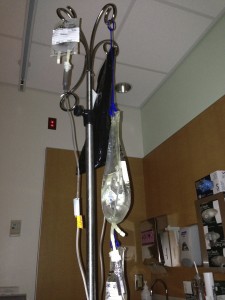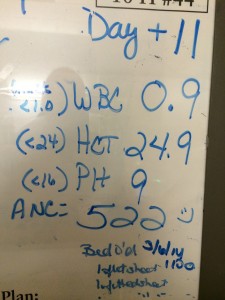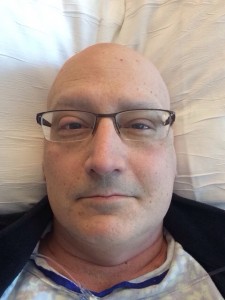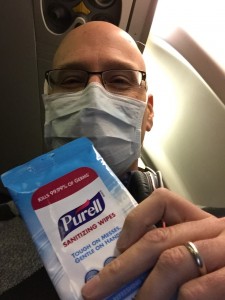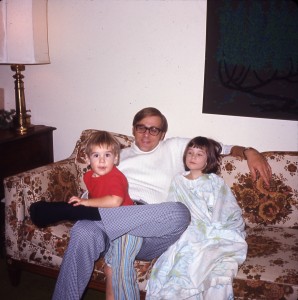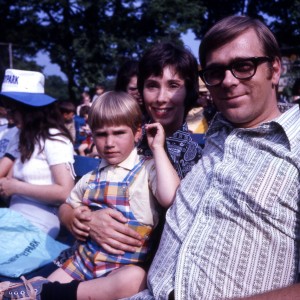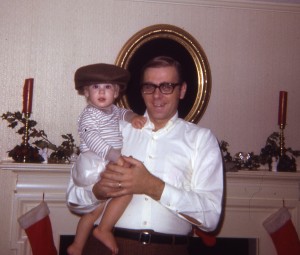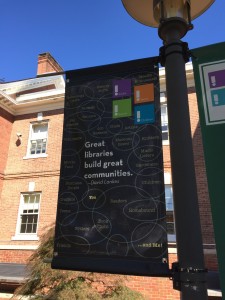 I don’t normally talk about library types. For me all libraries (really librarians in all contexts) serve a community, be that a community of citizens, students, faculty, lawyers or what have you. There is more that binds librarians together than separates them. That said, I have heard of a special set of concerns surrounding public libraries recently and it got me thinking. The conclusions I’ve come to, I believe, relate to libraries and librarians in just about every setting. But let me start with public libraries.
I don’t normally talk about library types. For me all libraries (really librarians in all contexts) serve a community, be that a community of citizens, students, faculty, lawyers or what have you. There is more that binds librarians together than separates them. That said, I have heard of a special set of concerns surrounding public libraries recently and it got me thinking. The conclusions I’ve come to, I believe, relate to libraries and librarians in just about every setting. But let me start with public libraries.
The two big concerns I’ve heard about are “what happens when public libraries are the last civic service agency standing,” and “as libraries expand services to include everything from tax help to maker spaces, how am I supposed to know it all?!” These two concerns are related.
To save money, government agency after government agency are closing local offices and moving “services” to the web. The quotes are there because while agencies often post documents online, they rarely provide sufficient human help to support functions. If I have a question about filling out a form, simply having access to the form online is not helping. Librarians realized this a long time ago (a collection of stuff is insufficient to educate or serve…we need librarians). However, the net effect from receding governmental services is that librarians are often left holding the bag in terms of support.
In today’s America, the public library is left standing virtually alone in the civic sphere. People don’t hang out in the police station. Parents are only welcome in the schools after they go through security and sign in. Social services and DMVs hardly create a sense of community.
In many ways this retreat of mediated social and civic services has pushed public libraries to reach out to their communities. It has, for the time being, provided an opportunity for libraries to re-center themselves in communities and become a more vital service to citizens. Where libraries could once confine their mission to literacy and assume a wider social safety net existed to handle issues of homelessness, democratic participation, education, even food support and adult literacy this is no longer the case.
While some of the publically funded safety net has been replaced by volunteer and religious organizations, the mission and functions of the library are being expanded. This is a good thing – the library has the opportunity to become more central in the lives of citizens. However, an expansion of services without a matching expansion of resources (budget, personnel, authority, training) is a recipe for disaster.
The apocalyptic vision for tomorrow’s public libraries is not obsolescence, but rather an over expanded shell doing a million things poorly. Like a balloon, libraries expand in mandates without support, creating an ever thinning membrane and an empty core. Rather than working to shore up the democratic process, libraries become the latest target of a citizenry looking for examples of failure in government. The question shall become not why we have libraries, but why my tax dollars support substandard service. It could feed directly into the ideological narrative that government can’t do anything right.
So how do librarians avoid this expansion to irrelevance? Some call for a retrenchment. Get back to core literacy (reading), refocus on collections, and sell the value of libraries as safe havens from the nasty world of ideology. I think this is an equally bad formula for failure. Rather than inviting claims of too little service in too many areas, we get cast as too narrow to be of use (if all we want is access to books, we’ll pay for city-wide/state-wide/country-wide access to Amazon). No, we need a plan to take hold of this opportunity and grow to meet the needs of our communities.
This plan for a new civic reality requires two major efforts. The first is obvious and many have started down this road: advocacy for more resources. We must mobilize citizens and government to resource the public library as the public face of the community – a market place of ideas and services where the private and public seamlessly intermingle. It is working in Chattanooga, Cuyahoga County, Portland, Seattle, San Francisco, and other places. It is the raison d’être for ALA’s push towards communities, and much of my own work.
However, and I need to be very clear here, it is not enough. If all libraries do is elect themselves the next great bureaucracy, we will lose as well. Librarians will lose their special status as the library is forced to hire more and more folks from other domains like social services, education, and the like. If the expansion of public libraries becomes simply a public service bucket where services exist as strove pipes side by side, we fail. Instead we must prepare librarians to do it all…sort of (please read the next paragraphs before you fire off that angry email).
There is a very real and legitimate worry that librarians of all stripes are being called to do too much. Can any one professional really be librarian, programmer, maker, social worker, and employment consultant? No. Librarians can’t do it all…but librarians can help a community do it all.
This ideal was put beautifully by a talented group of librarians behind the Robot Test Kitchen. Librarians have to move from sitting across the desk from their communities, to sitting beside them. Rather than looking at every new service/program offered by a library as a new set of skills that must be learned by a librarian, think of it as an opportunity for a librarian to empower a community member. With all due respect to Steve Thomas, we need to change his tag line from:
“Librarians don’t know everything. They just know how to find out everything.”
To
“Librarians don’t know everything, but they can empower everyone to share what they know.”
Admittedly this is not as catchy (don’t change the T-Shirts Steve), but it begins to encompass the most important change librarians need to make. From storing and organizing things for a community, to facilitating a community in sharing expertise and ideas.
You see, that is the big change and opportunity in librarianship. Stop looking at those who walk into your buildings or those who visit your web services as consumers and users who require help from an all-knowing bookworm. We gave up the idea that after Desk Set. It’s ok, we thought, the collection can still be comprehensive. But if we leave it to the collection then we are making the same mistake those government agencies are making…retreating to the town hall leaving pamphlets and forms to fill the void when people want service and opportunity.
Librarians have the ability (with resources) to form teams of experts on the payroll, but especially in the community, to educate, and improve that community. Librarians value in this equation is a little of the tools we bring (spaces, standards, collections), and A LOT in the expertise we bring. Librarians can help truly define community needs and gaps. Librarians can identify experts, and work with them to provide expertise to everyone (in lectures, hands-on skills, consulting, production, new publishing efforts). All the while knitting together the community in a tight fabric of knowing…that is the value of the librarian. Do librarians need to know everything? No! They need to know how to unlock the knowledge of the community and set it free while imbuing the entire community with the values of learning, openness, intellectual honesty, and intellectual safety.
So that’s that right…a public library problem. Except, of course, it isn’t. Faculty need research and support, students need motivation and to be valued. Lawyers need in trial support, doctors, oh God help me, doctors need the humanity of librarians working with people in crisis. Do librarians become doctors, lawyers, and faculty? In some special cases, yes. However, more generally, we become, as Stuart Sutton would put it, the connective tissue that binds the community together. Librarians become engineers in the social infrastructure of greatness that could be our communities.
This is our opportunity and challenge. The potential reward is not in dollars or square feet, but in better communities and improved lives. This is a vision worth fighting for, and that others will join. Right now, today, your communities are looking around to see which institution of democratic participation, which institution of learning, which principled corps of professionals can see them through a particularly scary moment in history. For all the promise of progress seen in every new iPhone there is the crippling poverty spreading like a cancer to fill the wage inequity of the land. For every new medical miracle cure there is an ebola shining the reality that nature is not simply controlled. For every fair and free election there is a brutal Islamic State showing us that freedom and participation is not in our genes, but in our constant mortal struggle to rise above our animal nature.
Our communities need us. In colleges and universities they need us to span the vaulted towers of disciplines. In schools they need us to shatter the isolating walls of the classroom to bring students and teachers into the light of inquiry. In our states and our towns they need librarians to provide safe shelter for the bodies and the minds of the frightened – we must embolden them with the armor of knowledge and the defense of their neighbors. If libraries are to be the last civic institution standing, then we shall stand tall, and together, locked arm in arm with our patrons, and students, and faculty, and principles, and congressmen, and all those who value the society we live in. We will not be so arrogant as to believe we can know it all, or that any one person, regardless of rank or title, can be alone in all the knowledge they ever need.

